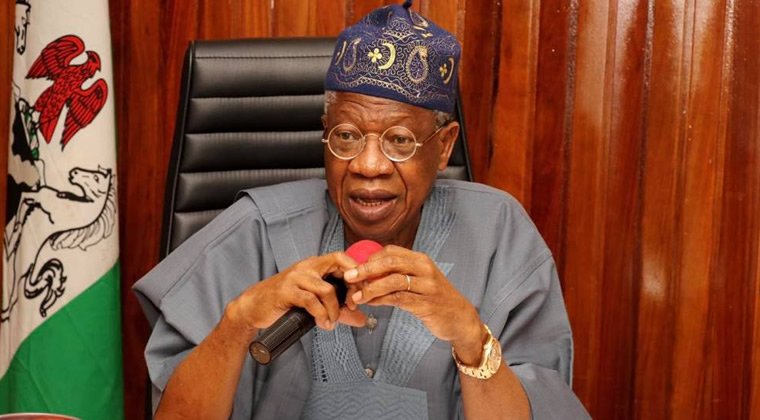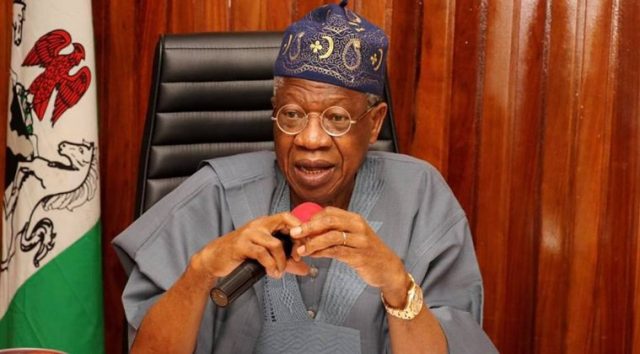To follow Prof. Okey Ndibe on his powerful weekly exposés and other interesting political and entertainment news from Nigeria, click HERE to subscribe to the Life and Times newsletter…
 Nigeria is as violent and unsafe as a country could be when it’s not – officially speaking – at war. Yet, last week the US signaled that Nigeria could be on the cusp of “heightened risks of terrorist attacks.” In an indication of the gravity of its assessment, Washington announced the withdrawal from Abuja of its non-emergency employees and their families.
Nigeria is as violent and unsafe as a country could be when it’s not – officially speaking – at war. Yet, last week the US signaled that Nigeria could be on the cusp of “heightened risks of terrorist attacks.” In an indication of the gravity of its assessment, Washington announced the withdrawal from Abuja of its non-emergency employees and their families.
Citing spiking threats of terrorism, kidnapping and maritime crimes, the United States advised Americans against traveling to Nigeria.
The UK, along with such European nations as Denmark, Finland, Ireland, Bulgaria, and Germany, echoed the Americans’ dire message. The UK’s bulletin stated: “Terrorists are very likely to try to carry out attacks in Nigeria. Attacks could be indiscriminate and could affect western interests, as well as places visited by tourists. There is an increased threat of terrorist attack in Abuja.”
Nigeria’s first official response was characteristically awful. Ever the genius at airy rhetoric, Information Minister Lai Mohammed let it be that the Muhammadu Buhari administration would not be stampeded by any advisory a foreign government gave to its citizens. He asserted that Nigeria’s security agencies had “in the last few months taken a firm handle of security.”
To justify and supplement his chest beating, the minister had to find some scapegoat. He blamed online “click baiting.” According to Lai Mohammed, the practice of sharing unverified stories was the cause and source of panic. Why heed such stories when one could live happily ever by hearkening to the minister’s very verified deodorized version of events?
Mohammed’s creed was, as usual, cocksure. Sayeth he, “I want to reassure both citizens, non-Nigerians, Nigerians living in this country, that security agencies are on top of this [security] matter.”
As he spoke, however, he seemed aware of the presence of a menacing needle. The needle seemed determined to threaten to puncture Lai’s balloon filled with fairytale lies. He made a rather fleeting concession to stark reality, admitting, “the terrorists would not stop to try to embarrass or intimidate government.” But not to worry, according to the worthy spokesman of a government in permanent snooze mode. Here was his final testament: “I’m saying…that this country is safe. And there’s no cause for alarm. No cause to panic.”
I mean, who would be so foolish as to panic after hearing such calming words? Who would not believe such speech from a man who, for close to eight years, has been the bearer of good tidings about all the magical accomplishments of the current administration?
Indeed, when reporters reminded Mohammed that the US travel advisory specifically listed several risky areas of Nigeria that Americans should avoid, Mohammed was not fazed. Instead, he saw an opportunity to deliver his tit for the Americans’ tat. With a straight face, he declared that the Nigeria mission in the US could also advise Nigerians on movement in that country.
Mohammed’s performance reinforced an idea I have nursed for sometime – that perhaps the man missed his true calling. His is an impossible, and in many ways thankless, task. Yet, in defending an inept and scandalously incompetent administration, Mohammed often adopts the loquaciousness and flair for sheer spectacle of a WWE wrestler. If only words, mere words, and the pounding of tables would suffice to guarantee safety and security, then Nigeria would indeed be the safest country on Earth.
Sadly, it takes a lot more than words. It takes, among other qualities, a culture of painstaking planning and disciplined execution. Nigerian leaders are allergic to planning, save for plans to amass illicit wealth. They are bereft of discipline, unless we’re talking about the disciplined pursuit of graft and other frivolities.
The kind of travel advisories released by the US and UK are, by their nature, inexact. Sometimes, they are based on solid intelligence; other times, on little more than hunches and best-guess analyses of events.
One hopes that the recent grim prognoses turn out empty. Over the past year, life has been particularly harsh for Nigerians. Terrorists, kidnappers, robbers and other violent criminals have had free run of every inch of the country’s space. Nobody is holding their breath, expecting the police to apprehend those who snatched commuters from a train station in Kaduna. The gunmen who massacred dozens of worshipers in a Catholic Church in Owo, Ondo State, are out there – and possibly plotting another shocker. The militants who overwhelmed Kuje prison and set inmates free have not been identified, much less arrested.
On a daily basis, Nigerians have demoralizing encounters with criminals who both heavily armed and merciless. What’s worse, nature has chosen a terrible time to strike. Scores of Nigerians have perished from flooding, and numerous communities across several states flushed from their homes. A government official declared the catastrophe an act of God. As if in obedience of some divine decree, the government has largely abandoned the displaced to their bleak fate.
Poverty is burgeoning as Nigerians reel from the economic devastation wrought by the Covid pandemic. The country is caught in a perfect storm. For decades, Nigerian leaders spoke about creating jobs, lifting people out of poverty, investing in infrastructure, and diversifying the economy. If only they had talked less and acted more. The reckoning has come for all those years of abdication.
Add ecological disaster to the mix and you see why the outlook – barring a miracle – is cataclysmic. Misery births desperation spawns criminality. Consider that the festive season of Christmas is around the corner. Many Nigerians have little to eat, and hardly have reason to be cheerful. This kind of climate is ripe for an uptick in Nigeria.
Perhaps, that’s what the US and UK analysts worked into their prediction of violent times to come. One hopes Nigerians scrape through, relatively unscathed. It would take more a stroke of luck than Mohammed’s misplaced and haughty sense of being in control.
Okechukwu Ndibe, better known as Okey Ndibe, (born 1960) an acclaimed Nigerian novelist, political columnist and essayist was born in Yola, Nigeria. He is the author of Arrows of Rain and Foreign Gods, Inc.
Ndibe has worked as a professor at several colleges, including Connecticut College, Bard College at Simon’s Rock, Trinity College in Hartford, Connecticut, and Brown University.
We are honored that he brings his sharp intellectual depth and years of political







